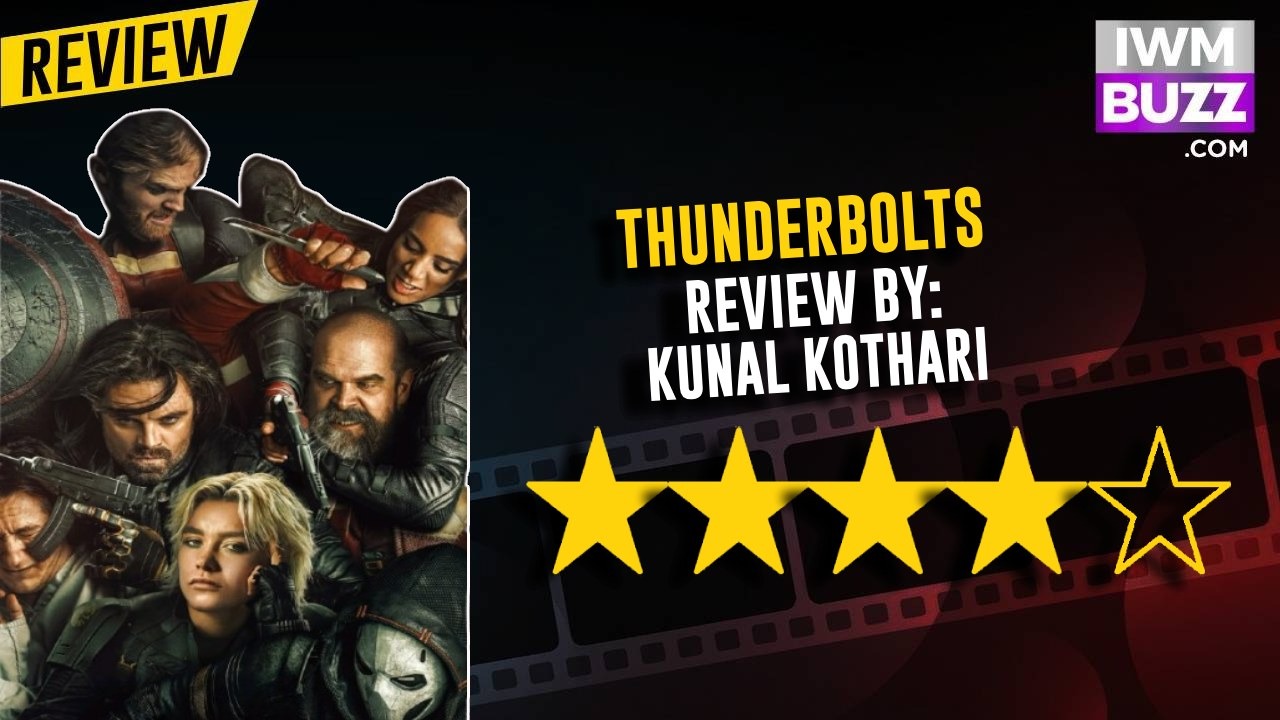Thunderbolts
Rating – ** (4/5)
Cast: Florence Pugh, David Harbour, Sebastian Stan, Hannah John-Kamen, Wyatt Russell, Lewis Pullman, Julia Louis-Dreyfus & more
Directed by: Jake Schreier
Produced by: Marvel Studios
Ah, that blissful, soul-stirring sensation of walking out of a Marvel movie with a smile, a heart full of adrenaline, and eyes teary from unexpected emotional punches—it’s been missing for far too long. Ever since the monumental crescendo that was Avengers: Endgame, there has existed a void. A deep, echoing vacuum that Marvel, despite its grand stature and galaxy-spanning reach, struggled to fill. One misfire after another, a slew of half-hearted attempts to reclaim former glory—it all seemed like a slow unraveling of a cinematic empire that once ruled pop culture with an iron (man) grip. But at long last, we can breathe a collective sigh of relief and boldly proclaim, “Welcome back, Marvel. Welcome back.”
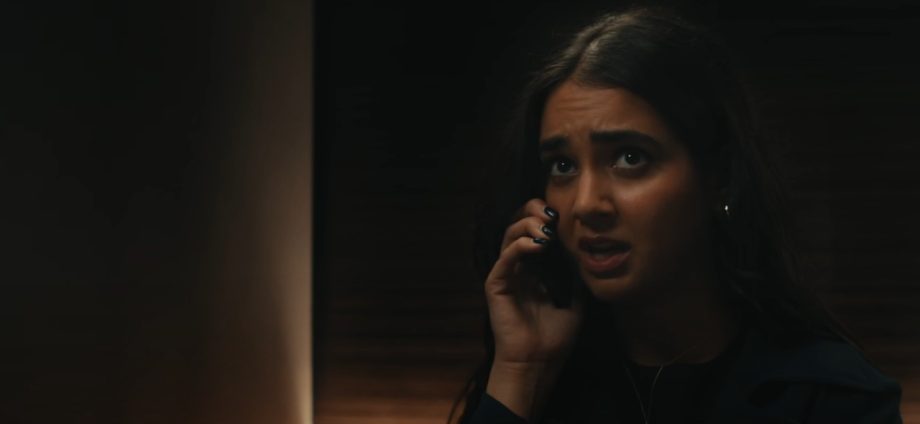
Thunderbolts arrives not merely as a film but as an experience, a statement, and a long-overdue corrective. However, it comes with a footnote—you’d benefit from watching Black Widow (yes, the one you may have skipped or snoozed through) to grasp the layered psyche of Yelena Belova (the always-magnetic Florence Pugh). The narrative spins around Valentina Allegra De Fontaine (a deliciously sly Julia Louis-Dreyfus), the quintessential Machiavellian politico—but with a twist. She’s masterminding a clandestine operation involving human medical trials, promising the rise of a force allegedly mightier than all the Avengers combined.
Perhaps the boldest of all moves was the highly controversial casting of Robert Downey Jr. as Doctor Doom—an eyebrow-raising choice that flirted with desperation. But this film doesn’t lean on nostalgia or legacy; instead, it chooses to reinvent, reimagine, and rise anew.
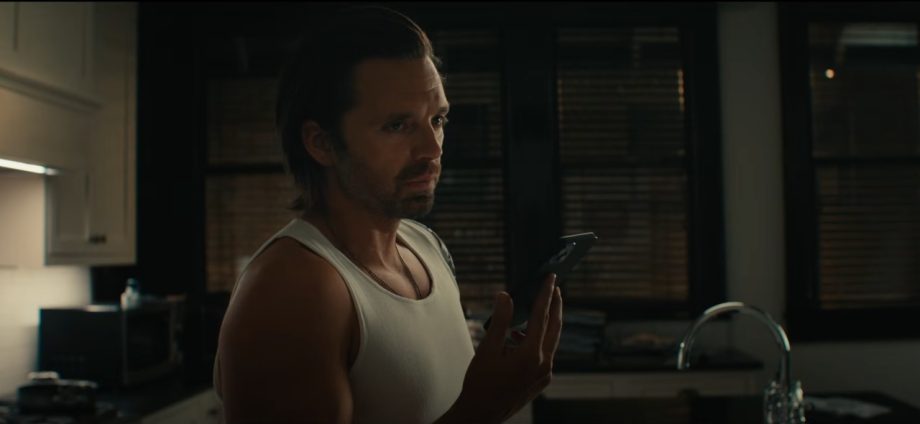
On the opposite end of this ideological spectrum, we meet a ragtag crew of misfits—fractured souls with scarred pasts, internal rifts, and absolutely no sense of camaraderie. They don’t gel, they don’t trust, and they certainly don’t intend to save the world. But self-preservation is a mighty motivator. Thus begins an electrifying journey of chaotic synergy, reluctant alliances, time-bending twists, and moments that catch you entirely off guard with their emotional gravitas.
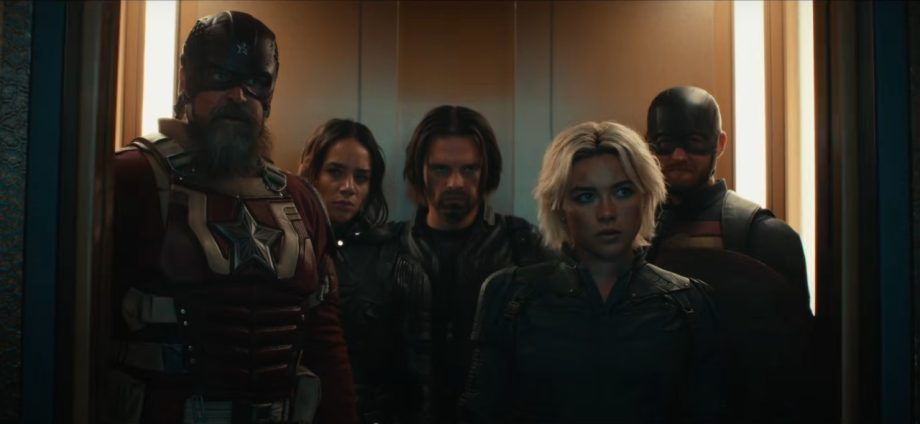
Thunderbolts doesn’t just course-correct Marvel’s recent narrative misadventures—it obliterates them. Perhaps the boldest of all moves was the highly controversial casting of Robert Downey Jr. as Doctor Doom—an eyebrow-raising choice that flirted with desperation. But this film doesn’t lean on nostalgia or legacy; instead, it chooses to reinvent, reimagine, and rise anew. Yes, the Avengers are referenced (they’re too iconic not to be), but Thunderbolts doesn’t aspire to mimic them. These aren’t heroes trying to uphold an ideal—they’re broken people trying to be… well, slightly less broken. A Marvel parallel to DC’s Suicide Squad, perhaps—but with significantly more finesse, nuance, and soul.
Director Jake Schreier understands the modern superhero assignment better than anyone in Marvel’s Phase 4 and 5 roster. The tired trope of emotionally anchoring high-octane spectacle in overdone sentimentality? He tosses that out the window. Instead, Schreier plunges headfirst into authentic emotional complexity—loneliness, trauma, self-worth, redemption—and lets those raw feelings steer the story. What emerges is not just a superhero ensemble, but a deeply intimate origin saga for a possible new dawn: the New Avengers, albeit with jagged edges and darker shades.
Thunderbolts is a resounding, full-throttle, emotionally intelligent swing at redefining Marvel’s next phase—and it connects
Human connection is the true superpower here. The only familiar face from yesteryears is Bucky Barnes (Sebastian Stan), and what a transformation he undergoes—from the haunted Winter Soldier to the spiritual spine of this new team. He’s not a figurehead or a symbol, just a man who’s seen too much and still chooses to fight. But it’s Yelena who emerges as the soul of this odyssey—a reluctant leader whose vulnerability becomes her strength. David Harbour’s Red Guardian, serving up brilliant comic relief, never once feels like a caricature. His humor is drawn from wide-eyed earnestness and a father’s unfiltered love, making him both hilarious and heartbreakingly real.
What makes Thunderbolts truly soar is how it leans into quiet sincerity instead of clanging bravado. Schreier and his team seem to have not only heard the criticisms hurled at Marvel over the past eight films—they’ve internalized them and responded with a film that’s smart, sensitive, and satisfyingly self-aware. The result is a story that’s refreshingly original, wildly engaging, and teeming with potential. This is not just a film; it’s a cinematic compass pointing Marvel back in the right direction.
Special mention must be made of Lewis Pullman’s portrayal of Bob/Robert. He is the beating heart amid the chaos, the emotional through-line that holds everything together. His character feels almost Hulk-like in trajectory—monstrous power, painful restraint, and a looming shadow of unpredictability—but without falling into recycled territory. Pullman manages to make Bob distinctly his own, and it’s exhilarating to think of what lies ahead for this mysterious powerhouse.
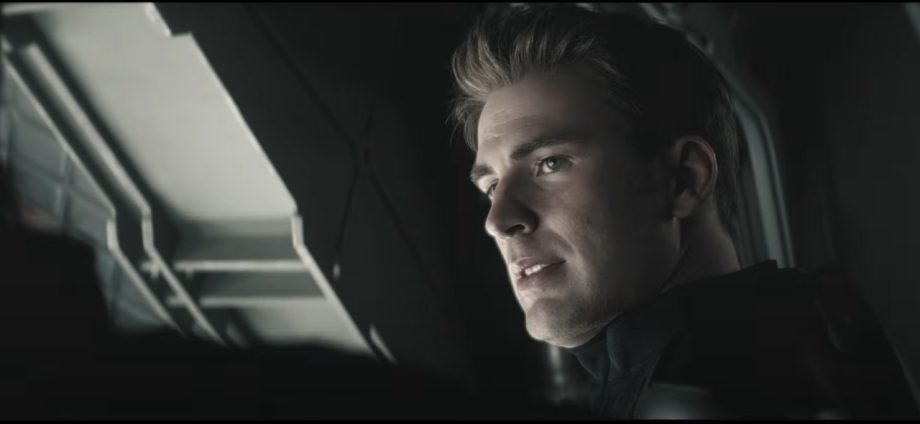
Of course, the film isn’t without its stumbles. The impeachment subplot involving Valentina is an intriguing twist but ends up frustratingly undercooked, disappearing for large stretches only to resurface in the third act. Similarly, Bucky’s seamless shift from near-politician to field operative feels narratively convenient, perhaps too much so. Yet, these are forgivable hiccups in an otherwise robust and riveting ride.
In the end, Thunderbolts is a resounding, full-throttle, emotionally intelligent swing at redefining Marvel’s next phase—and it connects. Whether audiences embrace it as the triumphant comeback it truly is remains to be seen. But make no mistake, this is the cinematic jolt Marvel has desperately needed. With the Fantastic Four on the horizon, the future no longer looks like a fading echo of past glory—it feels like an exhilarating, uncharted universe waiting to explode.
Well played, Marvel. We missed you—more than we realized.

